Nicolas Roche: The retirement interview
Irishman on the conflicting emotions behind his decision, his career highlights and regrets, and what comes next
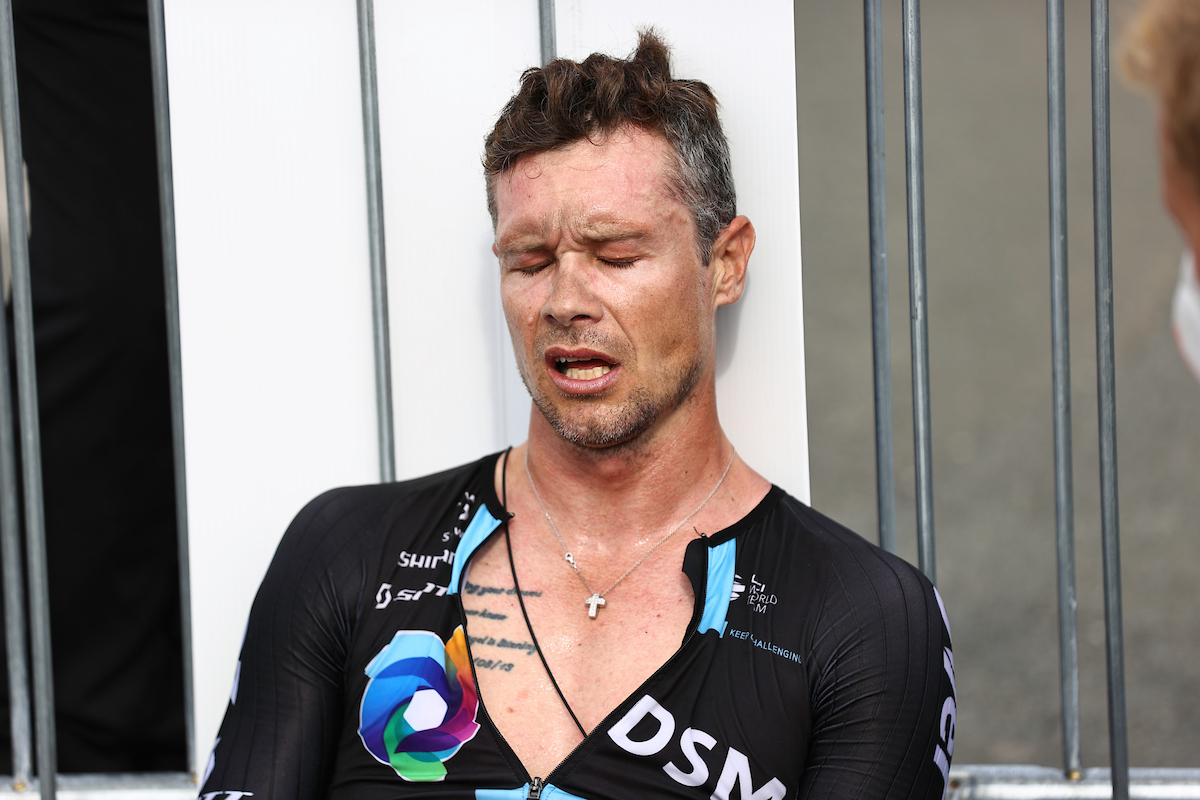
Had things gone perfectly to plan, Nicolas Roche would have won the Irish road race championship on Sunday, bringing the curtain down on his career in the best possible way. He loves visiting Ireland, relishes time spent training in the Wicklow mountains, and has always been passionate about riding the nationals.
For a period on Sunday, things appeared to be on track for an emotional final victory. Finishing second to Ryan Mullen in Thursday’s time trial showed he was in good form, and when he went clear early on with fellow WorldTour rider Eddie Dunbar, it looked highly promising. The duo built a lead of close to a minute and were fully committed when Dunbar slipped and fell on a wet bend.
Everything changed in that moment. Fending off the chasers alone for 60 kilometres was an impossible task and so Roche was eventually reeled in, energy spent. He rolled home in sixth, fairytale ending denied, but knows that things may well have turned out differently with a little more luck.
"One of the reasons why I finished the race once I was out of contention was that I wanted to roll to the finish line, using that four, five, six kilometres to rethink through my career," Roche tells Cyclingnews. "I was getting goosebumps in the last kilometre just thinking about the fact this was the end, that when I crossed the line and pressed set for the last time in my computer, that that was it."
After the finish, Roche was congratulated by family and friends, but in a quiet way. He had originally wanted to make a big announcement about his retirement on the eve of the championships, thus savouring the feedback from other riders and Irish cycling fans, but in the end he opted to hold off and lessen the spotlight.
This led to the discreet congratulations, the quiet post-race words, and, at one point, the tears behind his shades as he rode back towards the race headquarters. Many at the race may not have realised it at the time but, as the October sun illuminated the damp roads of Wicklow, his period as a professional athlete had just ended.
Finishing up ahead of schedule
Roche didn’t originally envisage things turning out this way. Speaking to the Irish Times in early 2017, he said that remaining in the sport for a long time was a big goal of his. “Ideally I’d aim for 40, just to have a 20-year career. I like round numbers," he said. "At the end of the day, I just love this job and I don’t want to give up on it.”
Get The Leadout Newsletter
The latest race content, interviews, features, reviews and expert buying guides, direct to your inbox!
Four and a half years later, he’s hanging up his wheels ahead of schedule. The Team DSM rider has gone through a range of emotions about it. When he first spoke with Cyclingnews about his possible retirement a fortnight ago, he sounded ready but, more recently, has wrestled with the decision.
At times, he felt he wanted to continue, and may well have signed on for another year had a good offer come along. Another part of him didn’t want to hang on, feeling a need for a new beginning. He was conflicted but, on Sunday, seemed more sure about the direction he was taking.
Still, given that original aim to race until he was 40, what brought things to this point?
"When I did some interviews pre-Giro, at the start of the year, I was like, ‘I’d go two, three years no problem," he explains. "But after the Giro, I realised that I didn’t enjoy the racing like I usually do. I was at a good level, but I wasn’t where I wanted to be."
He also had a growing awareness that he could be seriously hurt. "I realise that sometimes to perform you need to really, really accept risk taking. But there’s a moment in your life where taking risks could be a reward and there’s also times where taking a risk could be the end of it.
"I’ve had more significant crashes in the last two years than I have had in my whole career. I’ve broken my patella, I perforated my arm last year with the back wheel. These are scary things, you know. And it was like, ‘maybe I don’t want this anymore. If I crash, I can hurt myself badly.’
"When you’re young, you take those crazy risks. You’re always looking for gains. It’s like, ‘if I get to that corner first I can maybe win the stage and grow in my cycling career’. Now it is like, ‘if the guys crash in front of me, I could end up with a perforated lung, or that crash could be the end of my career. It’s not that I am chickening out; it’s just reality. Every cycling fan can see it, things have gone crazy. There are a lot of crashes now."
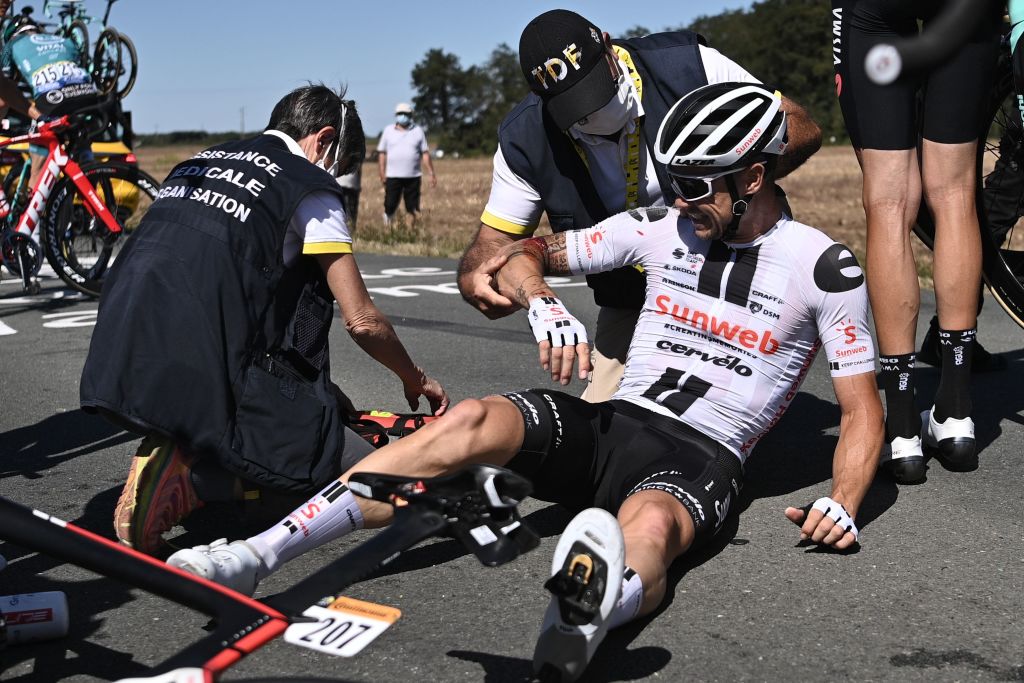
But there is another factor behind his decision. Roche is an older rider and, while experience may have been highly valued in the past, there seems to be less appreciation of that now. He seems disappointed that his current contract wasn’t renewed, and that contacts with other teams didn’t lead to anything.
"I didn’t have offers that were interesting enough. Age was a big problem every time. A lot of teams I spoke to wouldn’t even get to the point of talking about possible salaries; age was always the thing that came up. It’s much more so the case than a few years ago. When you look at things, they are buying junior riders now.
"They are all looking forward to finding the new Remco [Evenepoel] or the new [Tadej] Pogacar. They are so afraid to miss out on the next talent that they just buy riders from the junior ranks and hope that they develop. That’s the current trend. They are afraid to miss out on the next big thing."
The preference for younger riders is also relating to malleability, or compliance, or whatever you want to call it. “It’s hard to tell an older guy what to do,” he says. “I’ll give a quick example for myself. When I have a new coach who thinks his way of training is the best and I have an obligation to follow his program, but I’ve been doing a completely different program for five or six years and I think I know what works for me, then we go into conflict.
"The same goes with nutrition. If I’ve tried… I don’t know, a low-carb diet when I was at Sky, blah, blah, blah, blah, and now we’re going into full-carb diets and whatever, and they want me to eat five kilos of pasta, it is not going to work, because years ago I was already on low-carb diets.
"I’m not saying one is better, or one is worse. What I’m saying is there is a difference in ways of working. When you’re a young rider, obviously, all this is all new for you. So you do what you’re told more easily, rather than having your own point of view on things.
"And then there’s racing. I’m at the moment in my career now where I’ve done more Grand Tours than all the sports directors put together on this team. So obviously when I come up with a race scenario, it could be a different race scenario than what the sports director or the office have thought of. In every work it is the same. It’s not just related to cycling. Experience just means that you know what’s better for you, you have your stronger point of view."
Reflecting on the ups and downs
In the run-up to the Vuelta a España, some very interesting statistics emerged. The Twitter account StatsOnCycling mentioned the number of top-10 stage finishes of a dozen active riders at the Vuelta. Roche had amassed 43 at the Spanish race, and 65 top-10 Grand Tour stage finishes in all.
It’s a staggering measure of consistency in the sport, something which shows how good he has been across so many seasons. Roche sees it two ways, though.
"They’re good numbers," he agrees. "Unfortunately, I’m also…[big pause]… in a way the biggest loser. Because I’ve only had two stage wins out of these 65 top-10s. But, when you’re racing in Grand Tours, you’re always with the best of the best, so it’s always very, very difficult to actually nail the win."
Roche doesn’t mention that for many of those years, he was riding in the service of others. Whether it was with the likes of Cofidis at the start of his career or Saxo-Tinkoff, Team Sky, BMC Racing and Team Sunweb/Team DSM later on, there were many occasions when he sacrificed his own opportunities to help the designated team leaders.
He did enjoy more freedom with Crédit Agricole in 2007 and 2008, though, netting second on stage 18 of the 2008 Vuelta a España, his second Grand Tour, and finishing a fine 13th overall. His four years with AG2R La Mondiale between 2009 and 2012 brought even more opportunities, including second on a stage of his first Tour de France in 2009, a stage win in the 2011 Tour of Beijing, sixth overall in the 2010 Vuelta a España and 12th overall in the 2012 Tour de France.
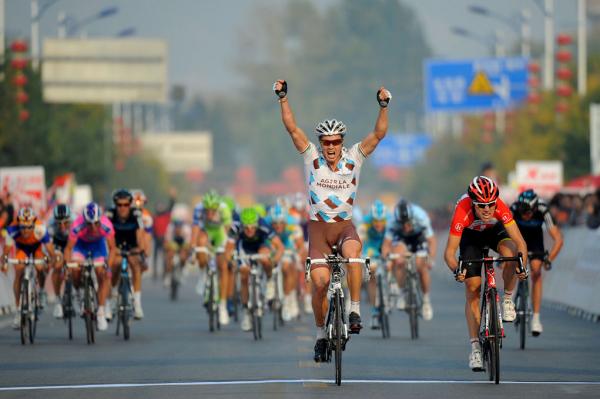
Things changed direction after that. Moving to Saxo-Tinkoff in 2013 was a shift in focus, in that he knew he would be required to ride in the service of Alberto Contador. Notwithstanding that, Contador’s absence from that year’s Vuelta meant that Roche had the chance to lead the team. Looking back now, he sees his performances in that race as the standout of his career.
"I guess the 2013 Vuelta is the highlight," he said, referring to his stage 2 victory, his seizing of the leader’s jersey and his eventual fifth place overall. “Even if I still feel that I should have podiumed that year.
"I still have frustration about that day in Andorra when I got really cold, lost a lot of time, and basically threw away the podium on a single stage. It’s one of my biggest regrets, not managing the cold in the right way. Because I was actually really well protected, it’s just that coming into the finish I went from having everything on to stripping everything off.
"I caught cold on the last descent before the last climb and I just could not get up the last climb. That’s it. When you are back in Ireland, we always talk about when you are racing you have to have no arm warmers, and all that. And that was still engraved in the back of my mind. It was minus two and I was with no arm warmers, no rain jacket, and no knee warmers. And next thing my knees were completely blue and I just could not touch the brakes anymore. That was it…game over and it was all my fault."
Roche had started the stage second overall and finished it down in sixth. It’s a case of what might have been, but he sees plenty of positives anyway over the three weeks of the race.
"Other than that, it was almost the perfect Vuelta for me," he says. "I was in a different leader’s jersey almost every day. I won a stage, I wore the race leader’s jersey, and still managed to finish fifth overall. I think for me that remains the highlight of my career."
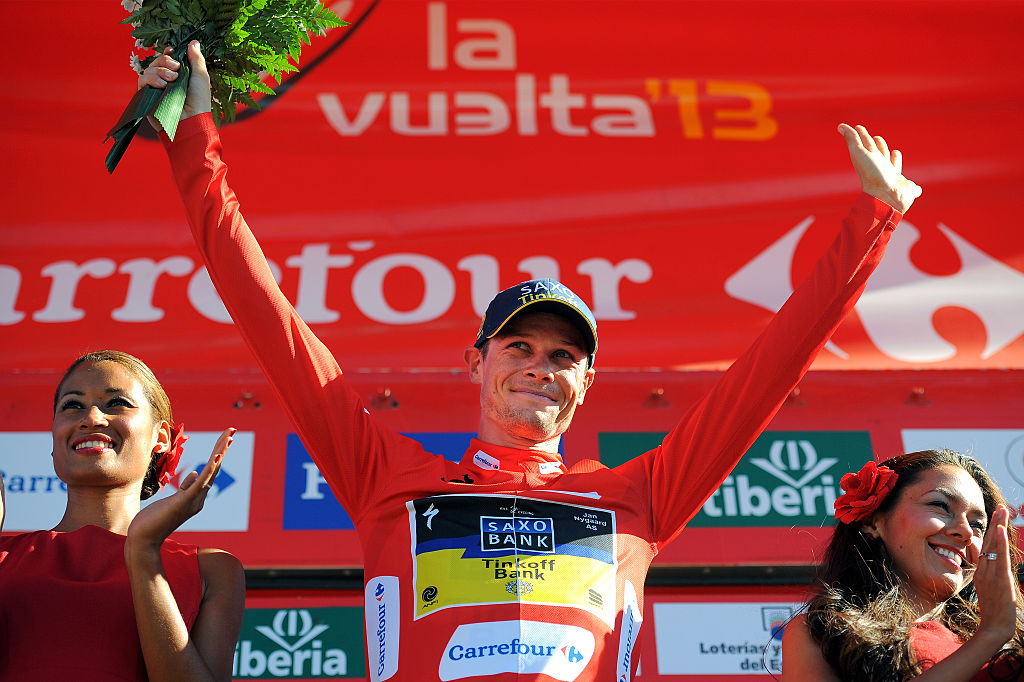
That race also gives him a wider perspective on the question of relinquishing the kind of leadership he had at AG2R. Given his sixth overall in the 2010 Vuelta plus his 12th in the 2012 Tour, some may wonder how he would have fared if he had remained on a team where he was one of the designated top dogs. It’s a valid point, but he sees a counter argument.
"I sacrificed maybe two Tour de Frances for Contador and the team,” he accepts. “But there were also a couple of times where I was the team leader, and I had a super-strong team to back me up. I was co-leader with [Rafal] Majka going into the 2014 Giro, but I crashed. The year before, in the 2013 Vuelta, it was great to have that team because I needed the support that I didn’t have, for example, when I was at AG2R.
"In a way, yes, that was the start of a change where I decided to go and work for the big guys, the big team leaders, but it also meant that when I was good enough, I also had a strong team to back me up."
Roche had fewer opportunities in subsequent years, but did win a stage plus the overall in the 2014 Route du Sud, beating Alejandro Valverde. After moving to Team Sky, he took a stage in the 2015 Vuelta a España and finished second overall in both the 2016 Abu Dhabi Tour and the Tour de Yorkshire. He also held the red leader’s jersey for two days at the 2019 Vuelta.
It’s a career with plenty of highlights, and also with some near misses that he regrets.
"Probably the biggest frustration is that I’ve never won a Tour de France stage. I was second a few times," he says, disappointment clear in his voice.
The Tour as a barometer for a changing mood
The Tour de France is, unsurprisingly, something that always meant a lot to him. He grew up steeped in the race, with his father Stephen winning it in 1987 and a three-year-old Nicolas Roche being present in Paris on the final day. Roche grew up dreaming about the event and, once he turned pro, it became a highlight of his season.
His depth of feeling about it is reflected in his reaction to missing it in 2016.
"In 2016, when Sky told me I wasn’t going to ride the Tour, I cried that whole night," he reveals. "I was in tears. For me, I was a rider for the Tour. It was the first time in my career I wasn’t picked for the Tour, after what was seven Tours at the time. I always felt that the Tour and me were one. And then I realized that no, there’s no one that’s irreplaceable. I felt I was a rider for the Tour, but obviously Team Sky had other reasons."
It is a measure of his fluctuating feelings about the sport that he had a very different reaction in 2021.
"This year, when I knew I wasn’t going to ride the Tour, it was fine. I felt that for once, I could have my birthday party with my friends and family. Since I rode my first Tour in 2009, I think I’ve only had three birthday parties at home. At the end of the day, this year was fine.
"I enjoyed watching the Tour on TV and I had no bitterness. I looked forward to enjoying my party with my friends and family, whereas in 2016 I didn’t care about my birthday - I was just desperate that I wasn’t riding the Tour."
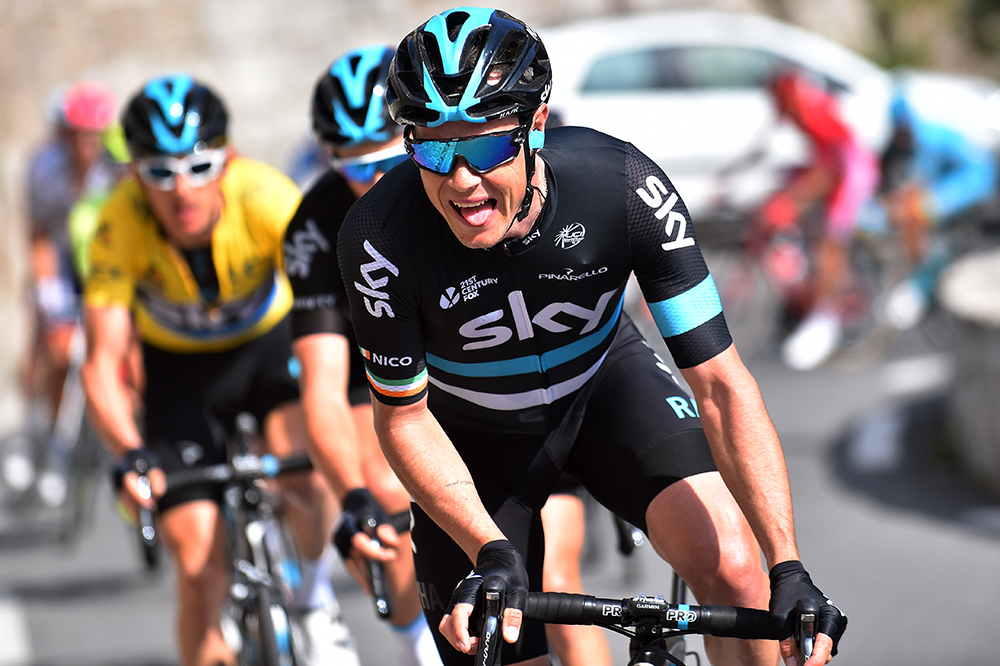
The statement shows that Roche’s perspective on things is changing.
"I realised that there was a lot more than cycling in life," he says. "And I think Covid also helped with that. I was brought up for the last 18, 19 years just thinking that cycling is the only priority and everything you do is always about cycling and everything else in the world is seen as a distraction for your career.
"Whereas I think today it’s time for me to slow down a bit, to have new goals and to start something new."
So what will he do next?
Roche is co-owner of Roca Sports, a bike shop in Cork in south-west Ireland. A second branch is planned for Galway, and he has links to another bike shop in London. He’s also going to work alongside his agent Andrew McQuaid at Trinity Sports Management, assisting him in his role while also going on to do the UCI manager’s course. The two have known each other for three decades and Roche describes him as ‘a kind of best buddy.’
He’s hoping to do TV commentary, too, having made some appearances on Eurosport in the past. Indeed, he says it was a period of time as a pundit on this year’s Vuelta which helped crystallise the fact that he was ready to leave the sport.
"I think there’s no accident that, when I’d just done a week on TV and absolutely enjoyed it, that I woke up the morning of the race in Plouay and thought, ‘what am I doing here?’ It was one of the first times where I realized I had more fun doing something else other than just cycling my bike."
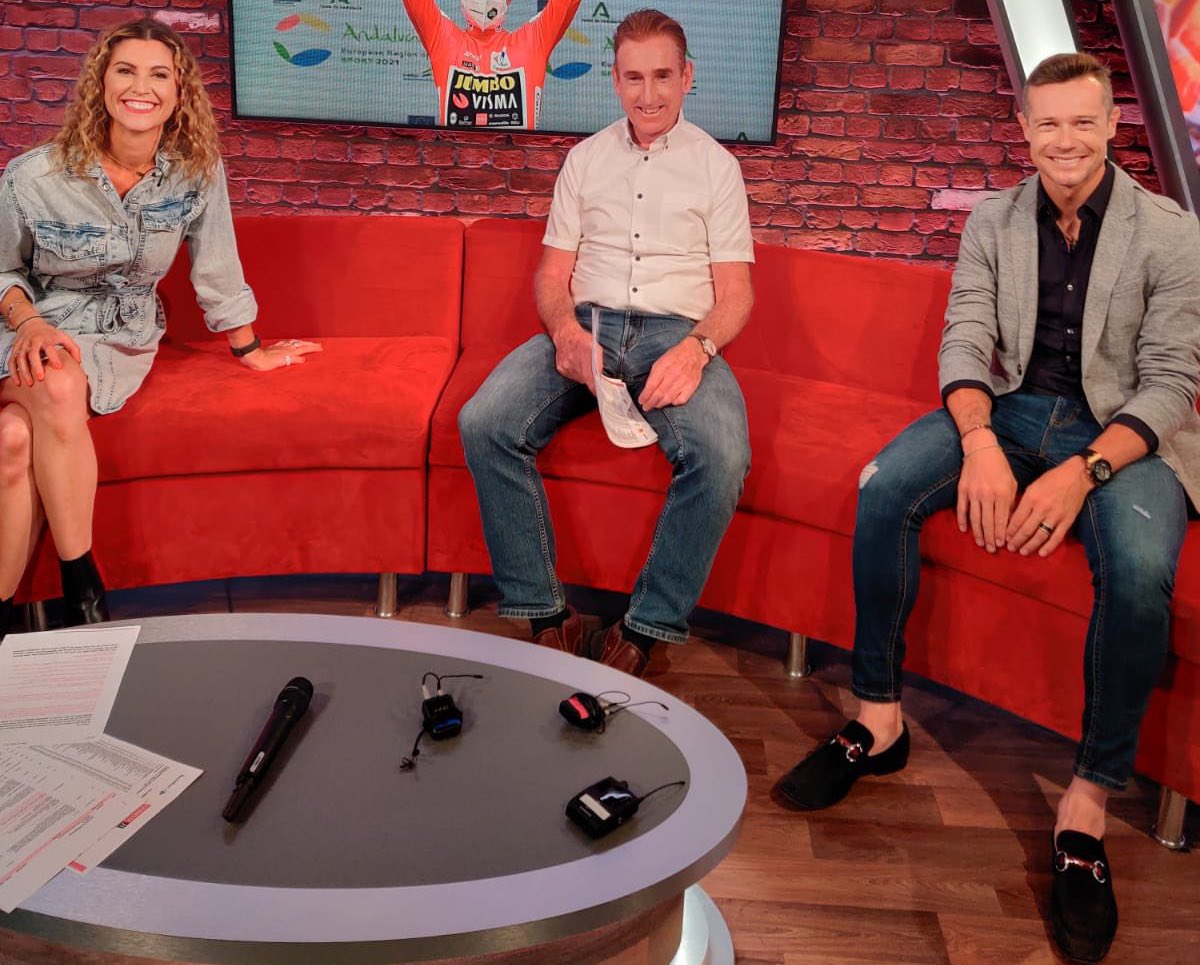
Everything, he feels, is pointing in a new direction.
"The day has come where I want to focus on something else. It’s time," he says.
"I’ve been travelling so much for the last 20 years, if you count from being an under-23, that there’s also a moment where I’m physically a little bit tired. And maybe I want to settle down.
"You know, my life has been a real rollercoaster between my divorce and everything. The last couple of years have been pretty hectic. I think I just want to take a breather as well. I’m only human, after all."